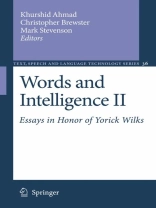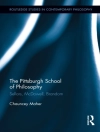It has been said of the brothers Wilhelm and Alexander von Humboldt that between them they were the last people to have known all that there was to know, to have had a mastery of the best that contemporary science knew and to have made significant contributions, to be that rare thing Renaissance men. In a world of ever-greater specialisation, especially in academia, the ability to cross intellectual boundaries, bring together ideas beyond the confines of one’s narrow discipline and yet make significant intellectual contributions has become ever rarer. In bringing together this celebration of Professor Yorick Wilks, it has been the ambition of the editors to provide the reader with a taste, an inkling of that which cannot be conveyed on the written page but only in the person of Yorick. He is a renaissance man in an age where such concepts have been forgotten. He is a bridge between a bewildering variety of contemporary research, and simultaneously a link between some of the most advanced thought in the broadly interpreted field of Artificial Intelligence (AI) and the long tradition of philosophy, literature, and general intellectual creativity that have fundamentally informed his academic research. This comes across in part when one considers his career, more so when one reads his writings but is most apparent in person. Modern scientists have become specialised, experts in only one specific domain.
قائمة المحتويات
Yorick Alexander Wilks: A Meaningful Journey.- Metaphor, Semantic Preferences and Context-Sensitivity.- Towards a New Generation of Language Resources in the Semantic Web Vision.- Information Access and Natural Language Processing: A Stimulating Dialogue.- Three Steps in Wilks Work: From Theory to Resources to Practice.- Preference Syntagmatics.- Historical Ontologies.- An Amorphous Object Must be Cut by a Blunt Tool.- Homer, the Author of The Iliad and the Computational-Linguistic Turn.- Philosophical Engineering.- Machine Translation and the World Wide Web.- Semantic Primitives: The Tip of the Iceberg.- Molecules, Meaning and Post-Modernist Semantics.












